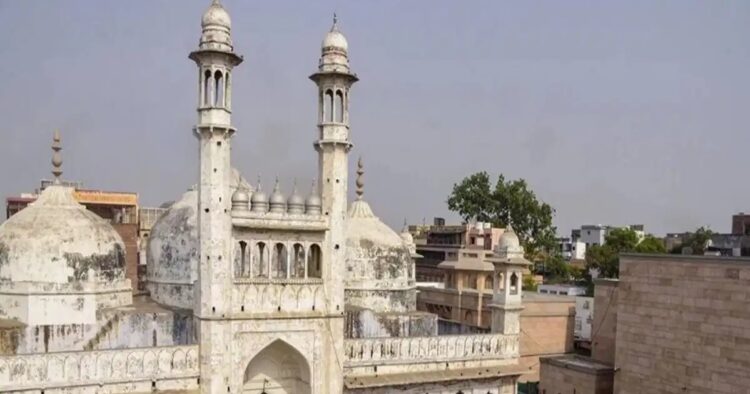In a significant development regarding the Gyanvapi complex controversy, the Allahabad High Court has upheld the decision of the Varanasi district court allowing prayers to continue in a cellar within the complex. Justice Rohit Ranjan Agarwal delivered the verdict, stating that after thorough examination of the case records and arguments from both sides, there were no grounds to overturn the district court’s judgment.
Advocate Prabhash, representing the Hindu side, hailed the verdict as a triumph for Sanatana Dharma, emphasizing that it ensures the continuity of prayers and the appointment of the District Magistrate as the receiver of the property. He noted that the Muslim side retains the option to seek a review of the decision.
Another advocate, Vishnu Shankar Jain, affirmed the court’s dismissal of the appeal filed by the Anjuman Intezamia Masajid Committee against the Varanasi court’s orders. He clarified that the ongoing puja in the ‘Vyas Tehkhana’ of the Gyanvapi complex will persist, and they are prepared to defend their position in the Supreme Court, should the mosque committee choose to appeal further.
The controversy stems from a ruling by the Varanasi court on January 31, permitting Hindu devotees to conduct prayers in the southern cellar, known as the ‘Vyas Tehkhana,’ of the Gyanvapi mosque. The court directed the district magistrate to facilitate the puja and nominate a pujari appointed by the Shri Kashi Vishwanath Temple Trust.
The Anjuman Intezamia Masajid Committee challenged this decision before the Allahabad High Court on February 1, following the Supreme Court’s refusal to expedite hearing their plea. The mosque committee contends that the Tehkhana is part of the mosque premises, disputing the rights of the Vyas family or any other entity to conduct worship within it.
Conversely, the Hindu side asserts that religious ceremonies were performed in the basement by the Vyas family until 1993, when they ceased following a directive from the state government.
AIMIM president Asaduddin Owaisi criticized the Varanasi court’s decision, labeling it a violation of the Places of Worship Act. He raised concerns about the timing of the judgment, citing the retiring judge’s influence and alleging insufficient opportunity for appeal. Owaisi expressed dismay over the court’s directive to open the grills within seven days, calling for a longer appeal period.
The dispute over the Gyanvapi Mosque, with its historical and religious significance, continues to evoke strong reactions and legal battles, reflecting the complexities of interfaith relations and legal frameworks governing religious sites in Bharat.

















Comments